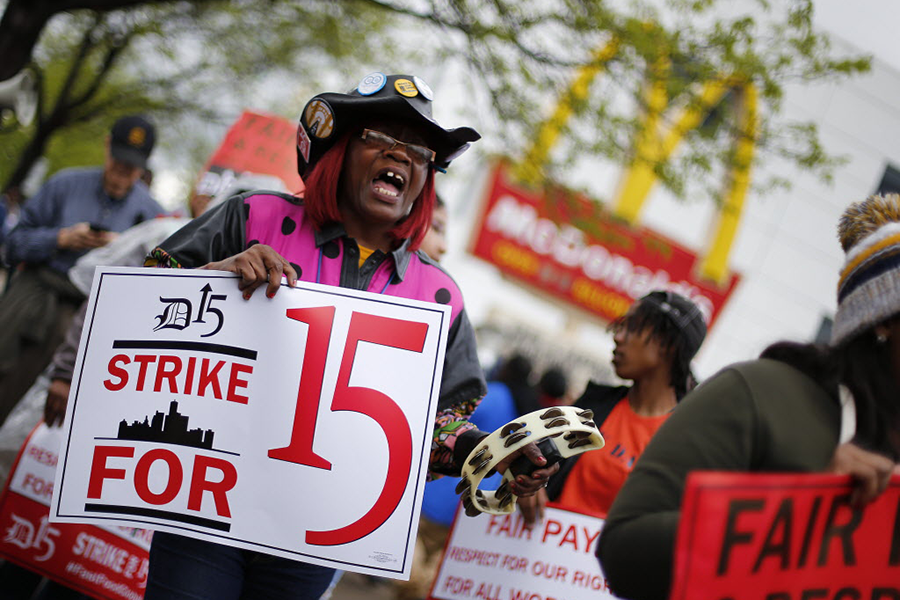Civil disobedience, arrests expected Thursday in fast-food pay fight
Loading...
| NEW YORK
McDonald's, Wendy's and other fast-food restaurants are expected to be targeted with acts of civil disobedience that could lead to arrests Thursday as labor organizers escalate their campaign to unionize the industry's workers.
Kendall Fells, an organizing director for Fast Food Forward, said workers in a couple of dozen cities were trained to peacefully engage in civil disobedience ahead of this week's planned protests.
Fells declined to say what exactly is in store for the protests in around 150 U.S. cities. But workers involved in the movement recently cited sit-ins as an example of strategies they could use to intensify their push for higher pay and unionization. Past protests have targeted a couple of restaurants in each city for a limited time, in many cases posing little disruption to operations.
A spokesman for the Service Employees International Union, which has been spearheading the protests, said home health care aides will join the actions in some locations.
The "Fight for $15" campaign has gained national attention at a time when growing income disparities have become a hot political issue. President Barack Obama renewed his push for Congress to raise the minimum wage at a Labor Day appearance in Milwaukee.
Many fast-food workers do not make much more than the federal minimum wage of $7.25 an hour. That equates to around $15,000 a year for 40 hours a week. But workers are often subject to unpredictable schedules and don't know how many hours they'll be given from week to week, since restaurants are careful to avoid paying overtime.
The fast-food campaign is designed to bring attention to such hardships, which few customers think about when buying burgers and fries, said Catherine Fisk, a professor of labor law at the University of California in Irvine. Over time, she said that could help "change the mindset" about fast-food jobs, which have historically been seen as difficult to unionize.
"The goal is to persuade workers that it doesn't have to be this way. The goal is to persuade consumers that it doesn't have to be this way," she said. "This is about getting attention to the issue."
Fisk noted that mining and manufacturing jobs were also once considered low-wage jobs with dim prospects. That changed in the 1930s, however, after legal protections for unionizing and actions by fed-up workers helped transform the jobs into more middle-class professions.
The National Restaurant Association said in a statement that the fast-food protests are attempts by unions "to boost their dwindling membership." The industry lobbying group said it hopes organizers will be respectful to customers and workers during the protests this week.
So far, the campaign and a similar effort on behalf of Wal-Mart workers have been effectively handled by BerlinRosen, a public relations firm known for its political work. Since the protests began in late 2012, organizers have kept the issue in the spotlight by switching up their tactics every few months.
They trumpeted the spread of protests around the country and then overseas, for instance, although turnout has been fairly minimal in some places. Organizers are also pushing to bring attention to the issue of "wage theft," such as the denial of overtime pay and rest breaks.
Several lawsuits alleging wage theft by McDonald's and its franchisees have been filed in three states on behalf of workers who were referred by labor organizers. McDonald's Corp. has said it would investigate the claims.
In the meantime, actions by labor organizers are likely to continue, with the SEIU pouring millions of dollars into the effort.







